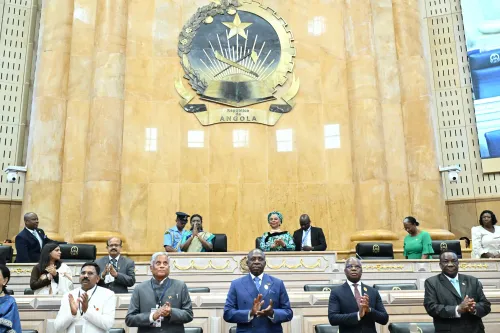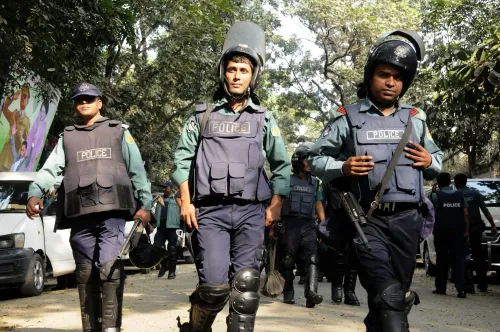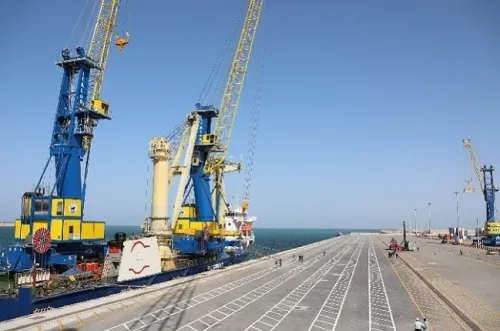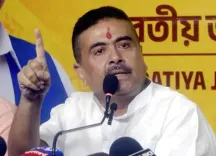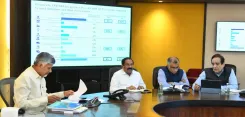Bangladeshi Political Parties Criticize Yunus, Doubt Interim Government's Commitment to Elections

Synopsis
Key Takeaways
- BNP criticizes the interim government under Yunus.
- Concerns about maintaining a democratic environment.
- National Consensus Commission discusses reform proposals.
- BNP and Jamaat-e-Islami at odds over election priorities.
- Calls for stability in law and order amidst political unrest.
Dhaka, Feb 19 (NationPress) Numerous political factions in Dhaka, including the Bangladesh Nationalist Party (BNP), have criticized the interim administration in the nation, raising doubts about its Chief Advisor Mohammad Yunus's commitment to conducting elections.
On Wednesday, BNP Secretary General Mirza Fakhrul Islam Alamgir voiced his apprehension regarding the interim government's commitment to holding the national election without unwarranted delays.
"The populace seeks a return to a democratic atmosphere. Yet, even after seven months, we have not attained that as the interim government appears to be completing certain tasks prior to the elections. Meanwhile, doubts have surfaced among citizens regarding their (the government's) sincerity about the election," stated Alamgir during an event in Dhaka.
"If anyone attempts to undermine democracy and impose a one-party or fascist rule, the populace will never tolerate it," the politician was cited as saying by Bangladeshi media.
The escalating dissatisfaction within the political sphere of Bangladesh, primarily aimed at the interim government led by Yunus, is noticeably present in Dhaka.
The National Consensus Commission, chaired by Yunus, convened its inaugural meeting last week to deliberate on reform proposals. The meeting saw participation from around 100 representatives from 27 parties and alliances, including BNP and Jamaat-e-Islami.
However, the interim government's choice to publicly disclose the positions of individual political parties on reform proposals post-meeting has led to discomfort among various political factions in Bangladesh.
BNP leaders have also condemned the interim government for its inability to maintain law and order over the past six months, alleging it has resulted in the emergence of a mob culture throughout the country.
As the Election Commission declared its intention to conduct national elections anytime after December 2025, noticeable divisions have emerged among political parties in Bangladesh.
The radical Jamaat-e-Islami is attempting to establish a coalition with other Islamist parties ahead of the upcoming general election following strained relations with former ally BNP.
Conversely, the BNP is also striving to incorporate the same Islamist factions into its electoral strategy.
The BNP and Jamaat-e-Islami are currently in conflict over whether local elections should precede the parliamentary elections. The BNP, which has risen as the dominant political party in Bangladesh after the downfall of the Sheikh Hasina-led Awami League government in August last year, opposes prioritizing local elections over national elections.

